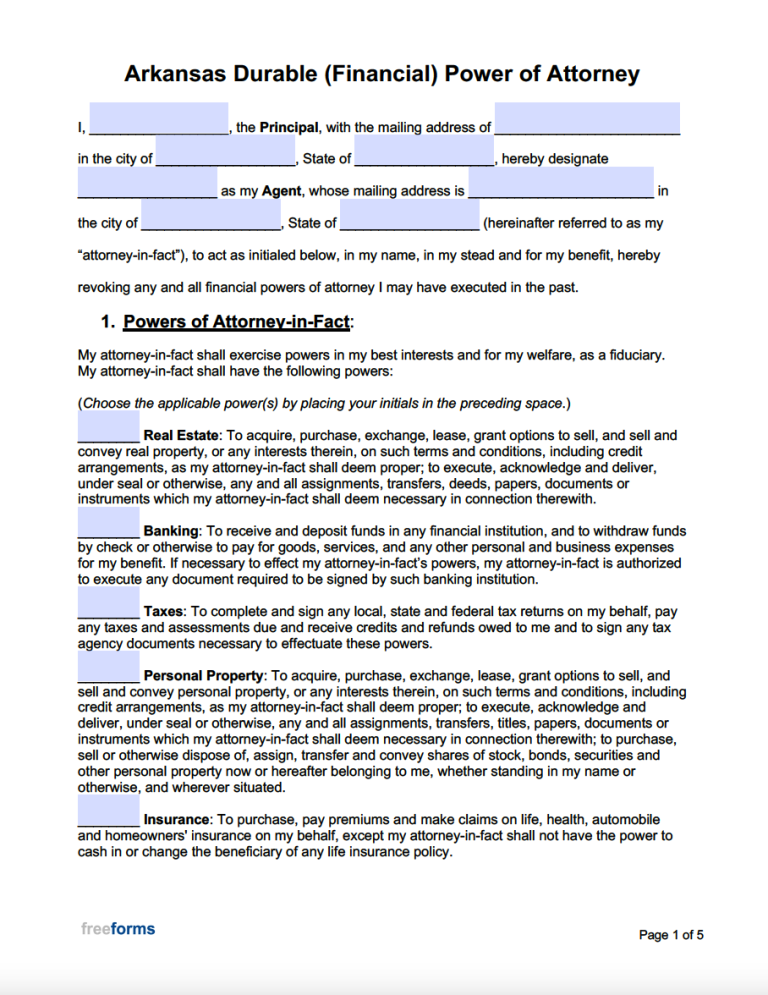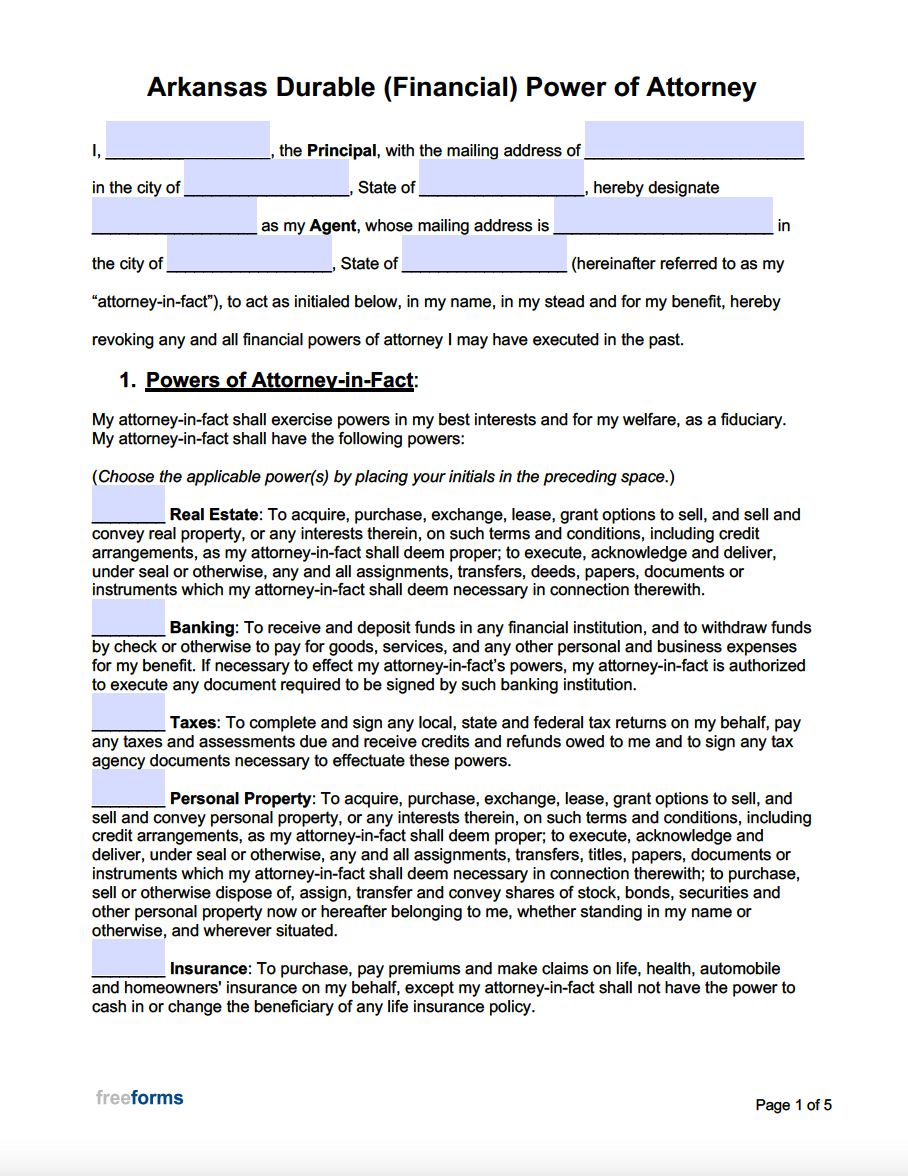All of these forms will require the user to register the names and addresses of both parties, the exact powers that they would like to offer, and any conditions related to the conveyance. The principal will usually have to sign the paperwork while being reviewed by a notary public and/or witness (this requirement can vary depending on the document used).
Laws
Statutes – Arkansas Code – Uniform Power of Attorney Act (§ 28-68-101 – 28-68-406) and Arkansas Code – Arkansas Healthcare Decisions Act (§ 20-6-101 – 20-6-118)
Definitions – “Power of Attorney” means a writing or other record that grants authority to an agent to act in the place of the principal, whether or not the term power of attorney is used (§ 28-68-102(7)).
Signing Requirements – A licensed notary (or authorized agent) must oversee all endorsements to certify the legitimacy of the document’s execution (§ 28-68-105). Advance directives, medical POAs, and living wills require either a notarial representative or two (2) acceptable witnessing parties to corroborate the endorsement of the contract (§ 20-6-103(c)(1)).
Revocation – § 28-68-110 and § 20-6-104
By Type (11)
- Advance Directive (Medical POA & Living Will)
- Durable (Financial) Power of Attorney
- General (Financial) Power of Attorney
- Limited (Special) Power of Attorney
- Living Will
- Medical Power of Attorney
- Minor Child Power of Attorney
- Motor Vehicle Power of Attorney
- Real Estate Power of Attorney
- Revocation of Power of Attorney
- Tax Power of Attorney
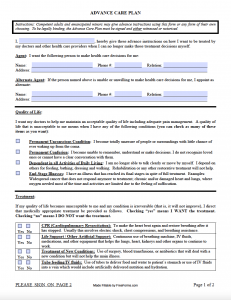 Advance Directive (Living Will & Medical POA) – More and more states are making this the standard form for individuals to record their wants regarding serious medical circumstances where they cannot vocalize their wishes.
Advance Directive (Living Will & Medical POA) – More and more states are making this the standard form for individuals to record their wants regarding serious medical circumstances where they cannot vocalize their wishes.
Download: PDF
Signing Requirements: Endorsements are to be performed under the supervision of a notary or two (2) witnesses (§ 20-6-103(c)(1)).
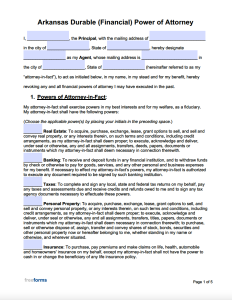 Durable (Financial) Power of Attorney – A customary legal document that allows the principal to grant an attorney-in-fact the right to perform various tasks in their name. (These powers are related to the appointing party’s finances/assets and will remain in effect even if the principal loses their mental capabilities.)
Durable (Financial) Power of Attorney – A customary legal document that allows the principal to grant an attorney-in-fact the right to perform various tasks in their name. (These powers are related to the appointing party’s finances/assets and will remain in effect even if the principal loses their mental capabilities.)
Download: PDF, Word (.docx)
Signing Requirements: A notary public or other permitted individual must be present at signing.
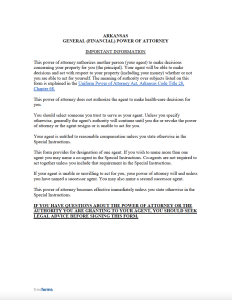 General (Financial) Power of Attorney – This form contains all the same options as the durable POA except that it terminates upon the principal’s incapacitation.
General (Financial) Power of Attorney – This form contains all the same options as the durable POA except that it terminates upon the principal’s incapacitation.
Download: PDF
Signing Requirements: An individual containing notarial powers must witness the principal’s signature.
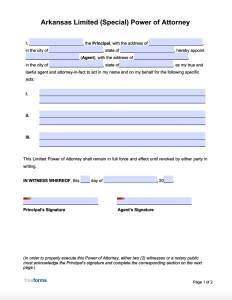 Limited (Special) Power of Attorney – Those seeking to appoint a more precise power may find this customizable document extremely beneficial.
Limited (Special) Power of Attorney – Those seeking to appoint a more precise power may find this customizable document extremely beneficial.
Download: PDF, Word (.docx)
Signing Requirements: An official who has the legal ability to notarize the form must observe the conveyor’s signature.
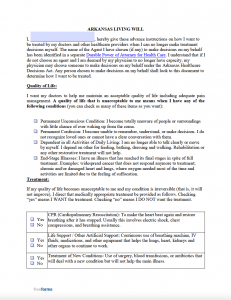 Living Will – Users can determine how certain critical situations involving medical care will be decided should they ever fall into an unconscious or unaware state.
Living Will – Users can determine how certain critical situations involving medical care will be decided should they ever fall into an unconscious or unaware state.
Download: PDF
Signing Requirements: Must be signed before a notary public or two (2) witnesses that meet the criteria of state regulation.
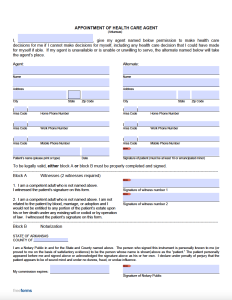 Medical Power of Attorney – This allows the principal to select a health care proxy to make decisions on their behalf in case they are unable to in the future.
Medical Power of Attorney – This allows the principal to select a health care proxy to make decisions on their behalf in case they are unable to in the future.
Download: PDF
Signing Requirements: To be endorsed by the principal within the vicinity of two (2) witnesses or an agent possessing the authority to notarize the instrument.
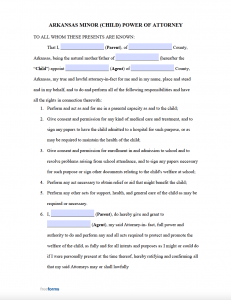 Minor (Child) Power of Attorney – Parents and guardians needing to convey certain parental rights to someone else can execute this written instrument.
Minor (Child) Power of Attorney – Parents and guardians needing to convey certain parental rights to someone else can execute this written instrument.
Download: PDF
Signing Requirements: The designating party must sign the document in the presence of a notary public.
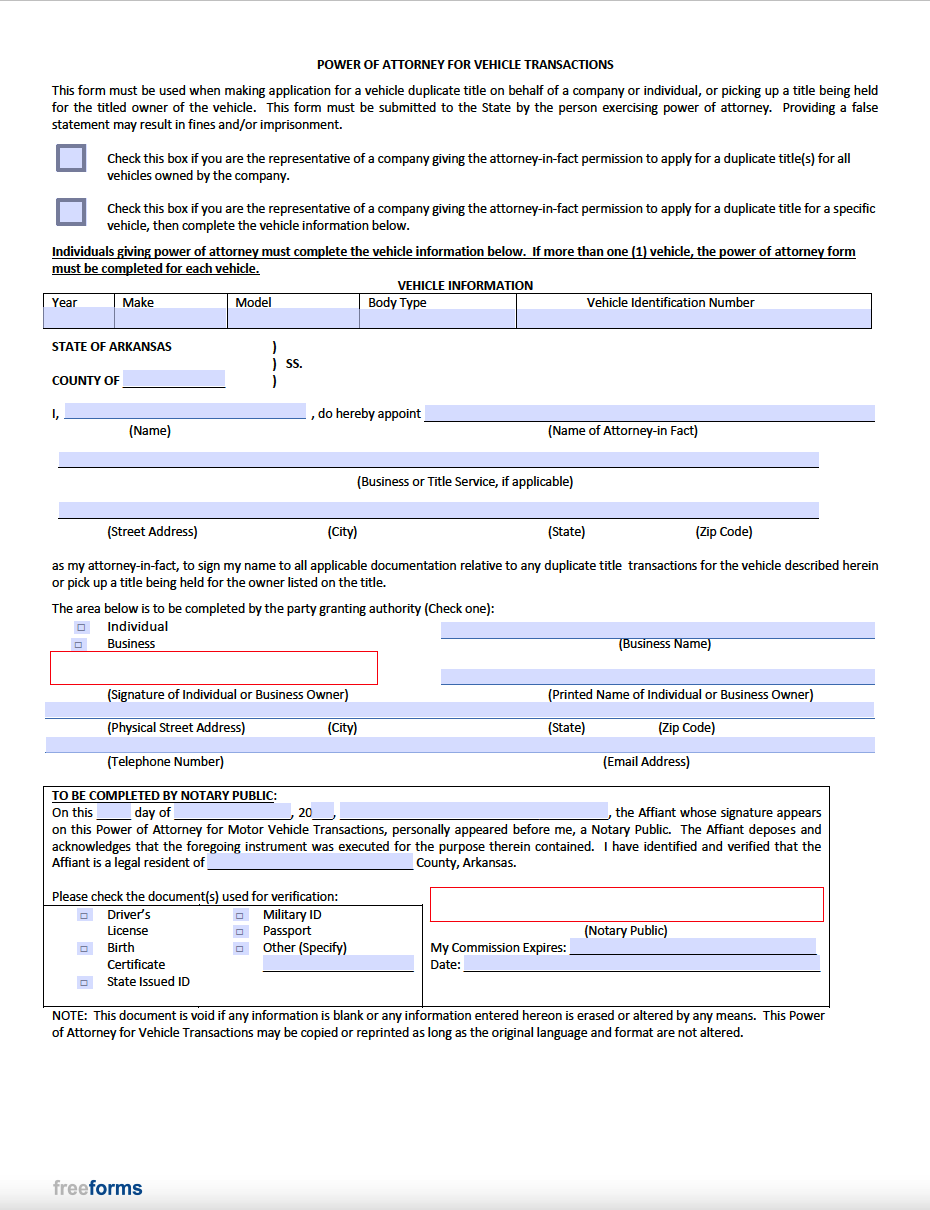 Motor Vehicle Power of Attorney – If a person or company wishes to furnish an agent with the right to operate on their behalf regarding actions related to a motor vehicle, then they may do so by completing this document.
Motor Vehicle Power of Attorney – If a person or company wishes to furnish an agent with the right to operate on their behalf regarding actions related to a motor vehicle, then they may do so by completing this document.
Download: PDF
Signing Requirements: Affiant must sign while being viewed by a notary public.
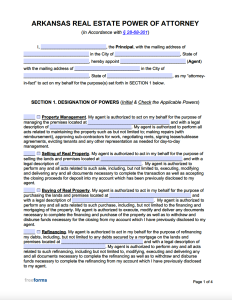 Real Estate Power of Attorney – Used when someone needs another individual to carry out certain real estate functions (buying, selling, managing, etc.) in their name.
Real Estate Power of Attorney – Used when someone needs another individual to carry out certain real estate functions (buying, selling, managing, etc.) in their name.
Download: PDF, Word (.docx)
Signing Requirements: Requires notarization from a certified individual.
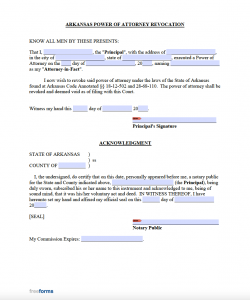 Revocation Power of Attorney – Overturn the declarations made within a previous POA by fulfilling the requirements of this form.
Revocation Power of Attorney – Overturn the declarations made within a previous POA by fulfilling the requirements of this form.
Download: PDF
Signing Requirements: Users are advised to have the document notarized by having an official witness the principal’s signature.
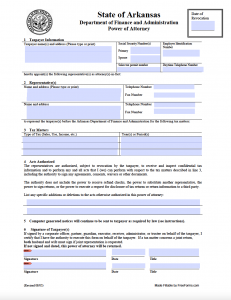 Tax Power of Attorney – Designates an individual or company to manage certain tax obligations on someone else’s behalf.
Tax Power of Attorney – Designates an individual or company to manage certain tax obligations on someone else’s behalf.
Download: PDF
Signing Requirements: Only requires the signature(s) of the taxpayer(s).


